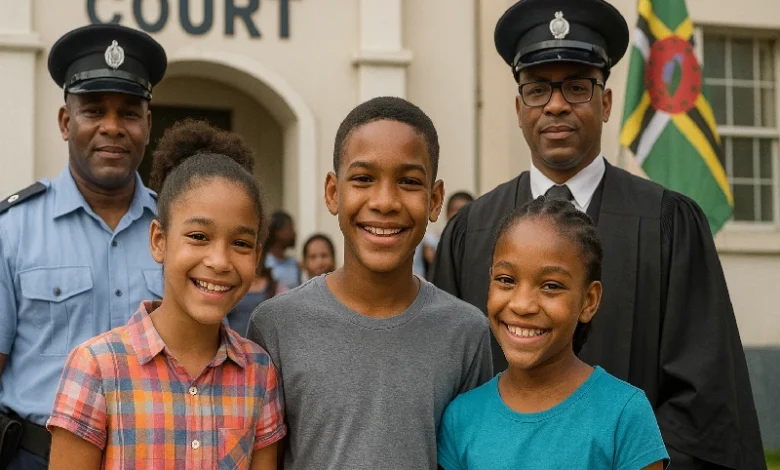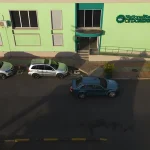Child Justice Bill for Dominica

The Child Justice Bill, currently under development in Dominica, represents a transformative approach to how the nation handles children in conflict with the law. Rooted in the principles of child rights, restorative justice, and rehabilitation, the bill proposes a dedicated legal framework tailored to the unique needs and circumstances of juveniles. Although not yet enacted, the bill has advanced to Cabinet-level review and aligns with broader efforts under the OECS Juvenile Justice Reform Project Phase II (JJRP II).
A Rights-Based Shift in Juvenile Justice
Dominica’s proposed Child Justice Bill aims to modernize juvenile justice in line with international standards, including the United Nations Convention on the Rights of the Child (UNCRC). Historically, children who entered the justice system were processed under adult-oriented laws like the Magistrate’s Code of Procedure Act. This bill proposes a distinct legal system, separate from adult courts, with procedures and protections that reflect the vulnerability and developmental needs of minors.
A key provision is the elevation of the minimum age of criminal responsibility to 12 years, with guidance on handling children below that age through care or protection systems rather than prosecution. This reflects global best practices, ensuring that very young children are not subject to punitive state action.
Diversion as a Foundational Principle
One of the most important innovations of the bill is its strong emphasis on diversion, a process of directing children away from formal court procedures and instead into programs or interventions that promote rehabilitation and reintegration. Diversion options may be considered both before and after formal charges are brought. These include counseling, apologies, restitution, community service, and family-based interventions.
Diversion is positioned not as a soft option but as a smart strategy, one that reduces reoffending, limits exposure to hardened offenders, and allows children to remain in familiar, structured environments. For the police and judiciary, the bill outlines Initial Inquiry Procedures, encouraging informal case conferencing before advancing to formal hearings.
Sentencing, Support, and Prohibition of Corporal Punishment
Where diversion is not appropriate or has failed, the bill sets clear standards for court procedures. Sentencing under the Child Justice Bill prioritizes rehabilitation over retribution. Probation orders, educational or vocational training, and supervised community service are encouraged. Pre-sentencing reports, detailing the child’s background, home life, mental health, and risk factors, are required for judges to make informed decisions.
A landmark provision is the explicit prohibition of corporal punishment as a judicial sentence, moving away from legacy disciplinary methods and aligning with Dominica’s obligations under international human rights instruments. This shift reinforces the view of children as rights holders who must not be subjected to cruel or degrading treatment.
Institutional and Support Systems
The successful implementation of the bill will depend not only on legislation but on the development of infrastructure and human resources. The government, in partnership with the OECS and UNICEF, has already committed to developing places of safety, residential rehabilitation facilities, and child-sensitive courtrooms. Additionally, capacity-building workshops for police officers, probation officers, social workers, and legal professionals have been ongoing since 2021, aimed at familiarizing them with diversion, child interviewing techniques, and trauma-informed care.
Furthermore, the bill outlines roles for interdisciplinary Child Justice Committees, which would monitor implementation, advise on systemic challenges, and foster collaboration across the justice, education, and social sectors.
Harmonizing with Broader Child Protection Measures
The Child Justice Bill is also designed to be compatible with Dominica’s broader child protection framework. While it focuses on children in conflict with the law, it complements the goals of existing and proposed legislation around child welfare, education, and family services. Together, these legal tools aim to create a holistic environment in which every child has access to support, justice, and a path forward.
Looking Ahead
As of 2025, the bill awaits parliamentary tabling, following policy-level consultations and review. Once passed, Dominica would join several Eastern Caribbean nations in establishing a dedicated and progressive legal system for juveniles. The impact of such a system could be profound, not only reducing recidivism but also sending a clear message that Dominica views its children not as threats to be punished but as citizens to be nurtured.
If enacted and properly supported, the Child Justice Bill could stand as one of the most important legal reforms in Dominica’s contemporary justice system, setting the stage for a more equitable, compassionate, and effective response to youth offending.




